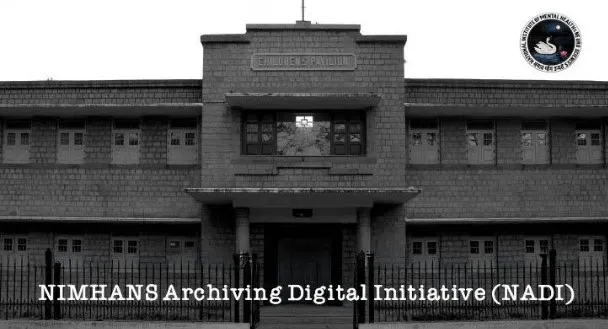Has NIMHANS Unveiled the World’s Largest Archived Patient Records?

Synopsis
Key Takeaways
- NIMHANS launches the world's largest archived patient record digitization.
- Over 37,000 patient records dating back to the 1890s are now available.
- Records span various mental health conditions and treatments.
- Access requires administrative and ethical approvals.
- The initiative enhances future mental health research.
New Delhi, July 3 (NationPress) In a groundbreaking move to enhance mental health research, the National Institute of Mental Health and NeuroSciences (NIMHANS) in Bengaluru has launched the world's largest collection of digitized archival patient records, dating back to the 1890s.
The NIMHANS Archiving Digital Initiative (NADI), containing over 37,000 patient records, was inaugurated at the institute's Heritage Museum by Director Prof. Pratima Murthy earlier this week.
NADI provides “a unique insight into more than a century of mental health and neuroscience history at our institution,” NIMHANS stated on the social media platform X.
“This extraordinary collection, with over 37,000 patient files, constitutes one of the largest historical archives in the realm of mental health and neurosciences worldwide,” it further noted.
Describing the records, which encompass conditions from schizophrenia to epilepsy and tumours, as “invaluable,” NIMHANS mentioned that they “trace back to the 1890s, during the period of the Mysore Lunatic Asylum, extending to the establishment of the All-India Institute of Mental Health (AIIMH) in 1954.
NIMHANS was founded in 1974 through the merger of the Mental Hospital initiated by the Government of Mysore and the AIIMH created by the Government of India.
These records have been carefully organized and cataloged with the use of KOHA software, a free and open-source Integrated Library System, to improve accessibility for students and researchers.
“The diagnostic categories included are remarkably varied, covering both psychiatric conditions (such as schizophrenia and depression) and neurological disorders (including epilepsy and dementia), along with neurosurgical cases (like head injuries and tumours),” NIMHANS explained.
“Each inpatient record reflects the diagnostic insights of its era, detailing treatment methodologies and results,” it added.
This initiative will empower researchers, students, and historians to investigate diagnostic patterns and the evolution of treatments. It will also facilitate the examination of the socio-medical landscape of mental health and neuroscience in India.
However, access “will necessitate administrative and ethical approvals,” NIMHANS clarified, stating that the institute will provide comprehensive guidelines on how to utilize these resources for training and research purposes.
“This initiative signifies a major advancement in safeguarding both our institution's and the nation's mental health and neuroscience legacy while also bolstering future research in the field,” NIMHANS concluded.







